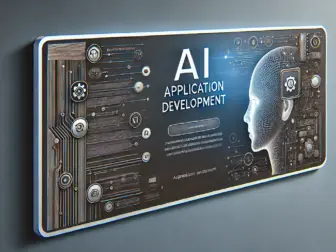Tag - AI in business
The Impact of Artificial Intelligence in Business
In today’s digital age, artificial intelligence (AI) is revolutionizing the way businesses operate. From streamlining processes to improving customer experiences, AI has the potential to transform the way we do business. With its ability to analyze large amounts of data and make predictions, AI is helping companies make better decisions and drive innovation.
One of the key ways AI is being used in business is through automation. By automating repetitive tasks, AI frees up employees to focus on more strategic and creative work. This not only improves efficiency but also allows businesses to be more agile and responsive to changing market conditions. For example, AI-powered chatbots are being used to handle customer queries and provide instant support, reducing the load on customer service teams.
AI is also being used to personalize customer experiences. By analyzing data on customer behavior and preferences, businesses can offer targeted products and services, leading to higher conversion rates and customer satisfaction. For instance, e-commerce companies are using recommendation engines powered by AI to suggest products to customers based on their browsing history and past purchases.
Furthermore, AI is helping businesses make better decisions through predictive analytics. By analyzing historical data and identifying patterns, AI can forecast future trends and outcomes, enabling businesses to make informed decisions. This is particularly useful in industries such as finance and marketing, where accurate predictions can give companies a competitive edge.
In addition, AI is playing a crucial role in risk management and fraud detection. By analyzing transactions in real-time, AI can flag suspicious activities and prevent fraudulent transactions, saving businesses millions of dollars in losses. This has become especially important in the era of online transactions, where the risk of fraud is higher than ever.
Overall, the impact of AI in business is undeniable. From automation to personalization to predictive analytics, AI is transforming the way businesses operate and interact with customers. As AI continues to evolve and improve, businesses that embrace this technology will have a significant advantage over their competitors. It is clear that AI is not just a trend but a fundamental shift in the way we do business, and companies that fail to adapt risk being left behind in the competitive landscape.
